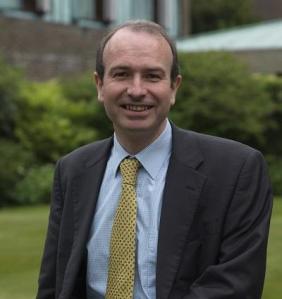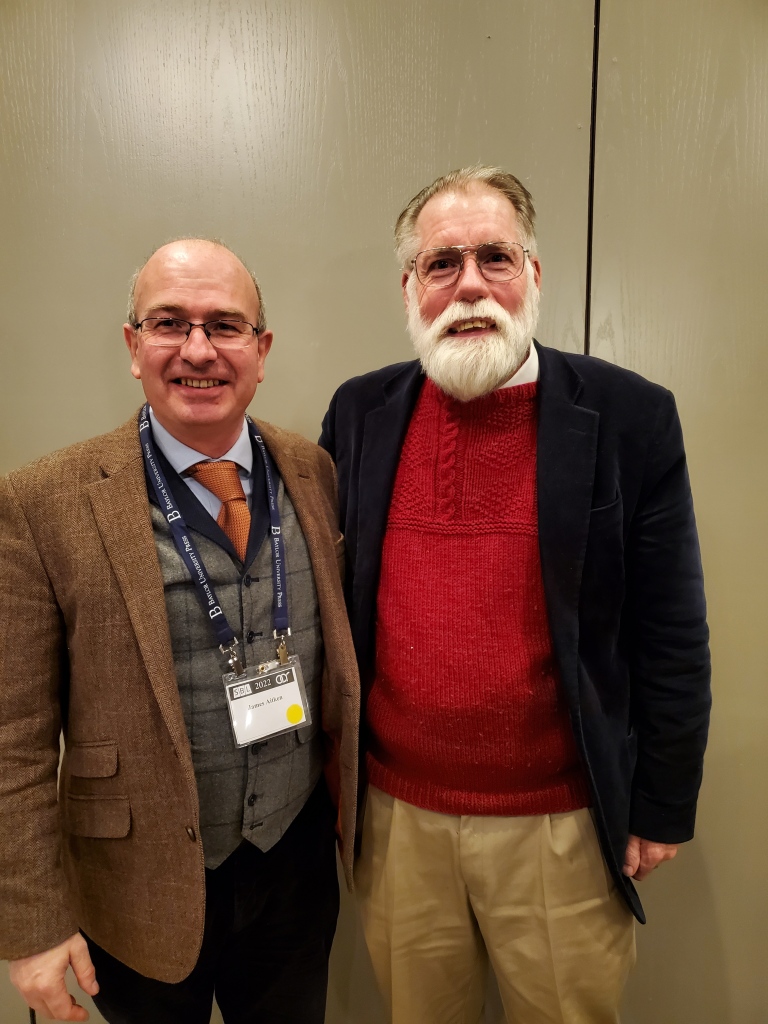With a heavy heart I learned this morning of the passing of Jim Aitken, a fellow traveler in the field of Septuagint and, more broadly, biblical studies. Jim West posted initially about Jim’s death here, and subsequently posted the SOTS announcement here.
There will be, no doubt, many over the next week who post tributes to Jim as a first-rate scholar with an international reputation. He deserves every bit of honor and esteem that will pour forth in journal notices and social media.
Behind the scholarship and erudition, however, was a warm, witty, gracious man. I remember my first personal encounter with Jim–New Orleans (Nov 2009) during SBL. A relatively new Ph.D. into my second year of teaching at Houston Baptist (now Houston Christian University), I had presented a paper in the Septuagint & Cognate Studies section on the topic of Aramaic influence on Greek translations of the Hebrew Bible. My friend John Meade was also presenting in that session, and both of us were rather intimidated by the towering scholars of the field in the room. Afterwards, Jim came up to chat. Since I didn’t know him, I didn’t know what to expect (sometimes SBL meetings can resemble a gladiatorial bloodletting!). What I received was refreshing–warm encouragement, genuine interest in my thoughts, and time. Plenty of time. The room was filled with many important people, and Jim chose to spend time talking to me (and John), who were fairly unknown scholars trying to find our way in the world of the academy. I’ve always appreciated that first conversation with Jim.
Our paths continued to cross over the year at SBL meetings. When we finally starting graduating students from our MA in Biblical Languages program, one of our promising young graduates, Chris Fresch, decided he’d like to study Septuagint. I knew exactly who to send him to–Jim Aitken at Cambridge. I have known several now who have worked with Jim during their graduate work, and each has voiced admiration and appreciation for him.
My last interactions with Jim were happy ones. During the ETS/SBL meetings in Denver last year, Jim and I happened to grab a seat together over lunch at the Zondervan luncheon. We enjoyed a nice visit at that time. What’s more, to come full circle from John Meade’s and my initial meeting with Jim together in 2009, the two of us got to see Jim last November at the Denver SBL meeting during a special dinner honoring Peter Gentry in anticipation of his Festschrift (coming out in 2023 with Peeters). Jim Aitken had graciously agreed to submit an essay for the volume, and so as editors of the volume, John Meade, Jonathan Kiel, and I were keen to have Jim there for that special dinner. Little did we all know that it would be our last meal together, so we thank our God for his kind providences. At the end of this post are some photos from that dinner celebration. One of the pictures is of Jim with Peter Gentry, and the larger photo has Jim to the right of Claude Cox, across the table from Emanuel and Lika Tov.
When I heard about Jim’s untimely death, I checked his Twitter profile just to see if there were any updates or news there on what had happened. The final post on his profile reads as follows (dated Mar 30, a week before he passed away):
I wrote 5 words yesterday, but they were all exceptionally good words. At least two (“the …of…”) will probably survive the final edits too.
As I wrap up this “good word” (eulogia/εὐλογία), I note that Jim’s life to the very end was concerned with writing exceptionally good words. May the life-long legacy of his good words continue to shape, challenge, and sharpen us, even in those areas where we might sharply disagree. That, too, would honor Jim’s life.




